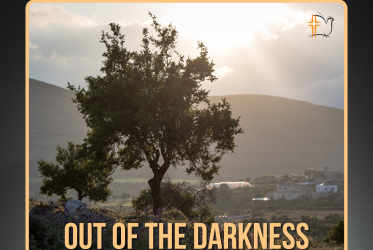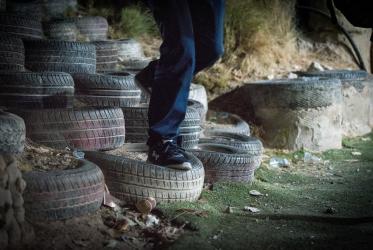Introduction
God’s justice allows all people to worship God freely. Jerusalem is a sacred city for three major world religions: Judaism, Christianity, and Islam, all of whom worship the God of Abraham. Isaiah, recognized as a prophet by all three faiths, declares in this biblical text that the house of God is meant to be “a house of prayer for all peoples.” The multi-faith identity of Jerusalem and of Israel and Palestine as a whole is recognized by the state of Israel as well as the Palestinian community. However, despite Israel’s stated commitment to supporting freedom of worship for all three faiths, the reality is that access to worship is unequal, and significant obstacles exist for Christian and Muslim Palestinians who seek to worship in their sacred places. This year, as the Jewish observance of Pesach/Passover, Christians’ Holy Week and Easter, and the holy month of Ramadan for Muslims overlap, it is more important than ever to advocate for safe and secure access to worship for all residents of Jerusalem and the Holy Land.
Bible Text
Isaiah 56:7
7 These I will bring to my holy mountain,
and make them joyful in my house of prayer;
their burnt offerings and their sacrifices
will be accepted on my altar;
for my house shall be called a house of prayer
for all peoples.
Reflection
Jerusalem is a place of prayer. This is true all year round, but never more so than when each of the three major religions who share the Holy Land celebrates their major festivals and solemn remembrances. This year, Holy Week and Easter (in the Western and Eastern traditions) will encompass April 10–23; Pesach/Passover will be April 15–22, and Ramadan will span April 2–May 2. The confluence of these holy seasons should be a time for Jews, Christians, and Muslims alike to be “joyful in [God’s] house of prayer.”
Yet the struggle for safe and secure access to holy sites is ongoing, particularly for Christians and Muslims. The Israeli separation wall is a key example of this, as armed guards at military checkpoints determine whether Palestinians may enter Jerusalem or other areas to worship (as well as to work, see family, receive medical treatment, or for any other reason). Permits to enter are not always granted, and even if granted, permits are not always honoured.
In addition, in December 2021, a letter released by the heads of churches in Jerusalem to the global community brought to light some of the ways in which Christian worship has been threatened in recent days: by attacks on Christian clergy and members, by vandalism and damage at Christian churches and worship sites, and by harassment and intimidation by extremist Israeli nationalist groups. This call was echoed by several individual church leaders in international media. Some Israeli sources dispute these claims, insisting that Christians in Israel have equality and free access to worship. This counterargument ignores the lack of similar rights for Palestinian Christians in East Jerusalem, the West Bank, and Gaza.
What would it look like to preserve the multi-faith identity of Jerusalem through equal access to worship? This is hardly a new idea, as Isaiah’s declaration proves. The “holy mountain” and “house of prayer” to which the prophet refers is Jerusalem itself, and the sacred ground of Israel’s temple—which today includes the Western Wall as well as the Al-Aqsa Mosque and the Dome of the Rock, sites held sacred to Jews and Muslims from all over the world. Not far from this part of Jerusalem’s Old City is the beginning of the Via Dolorosa, the solemn path that commemorates Jesus’ walk to the place of his crucifixion and resurrection. Even as the book of Isaiah promises the community of Israel in exile that they will one day celebrate a joyful return to the temple, the prophet proclaims an expanded vision for this holy place, one in which God invites and accepts the worship of “all peoples,” whom God will gather and make joyful.
Note that Isaiah also makes one thing clear: the “holy mountain,” the “house of prayer,” and the invitation all belong to God and come from God. It is God who imbues the place and the people with holiness. In Christian marriage, the church sometimes says, “what God has joined together, let no human being separate.” Similarly, we may say: for those whom God has invited and welcomed into God’s house of prayer, let no human being prevent them!
Questions
1. In the Jewish, Christian, and Muslim traditions, prayer can happen in many places, yet sacred spaces have long been set aside for worship. What makes these spaces sacred or holy?
2. Who in your own community might face obstacles to safe, secure, and free worship? How might you act as a neighbour to these people?
Prayer:
Holy God, encountering you in worship gives us life and strengthens our faith. In worship, we are humbled by your presence, embraced by your love, and sent out in service of our neighbours. We pray for those who are prevented from freely worshipping you and all those who endure harassment and violence because of their worship. May we, by your Spirit, work for a world in which all peoples can joyfully, freely, and safely come to your house of prayer. In Jesus’ name, Amen.





